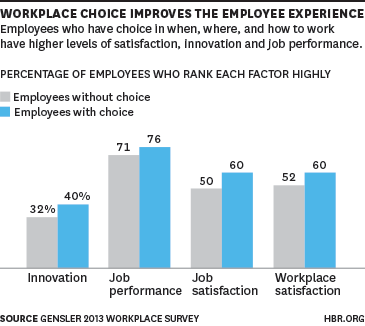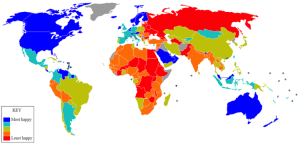In his book Drive: The Surprising Truth About What Motivates Us (the book that convinced me organizational behavior was important), business author Dan Pink identified three major factors that lead to better job performance (when money is no longer an issue): (1) autonomy, (2) mastery, and (3) purpose. A new blog post at Harvard Business Review discusses recent research that provides more support for the notion of autonomy. “An emerging suite of literature and research…clearly points to the power of choice and autonomy to drive not only employee happiness, but also motivation and performance. We found that knowledge workers whose companies allow them to help decide when, where, and how they work were more likely to be satisfied with their jobs, performed better, and viewed their company as more innovative than competitors that didn’t offer such choices.”
The main research comes from Gensler’s 2013 U.S. Workforce Survey. Even more interesting is that workplace autonomy was only one of three major findings from the Gensler Survey:
- Employees who can focus are more effective. “When focus is compromised in pursuit of collaboration, neither works well.”
- Effectively balancing focus and collaboration improves performance.
- Employees with more choice are more effective.
To all the managers in our readership: you might want to check this out.











